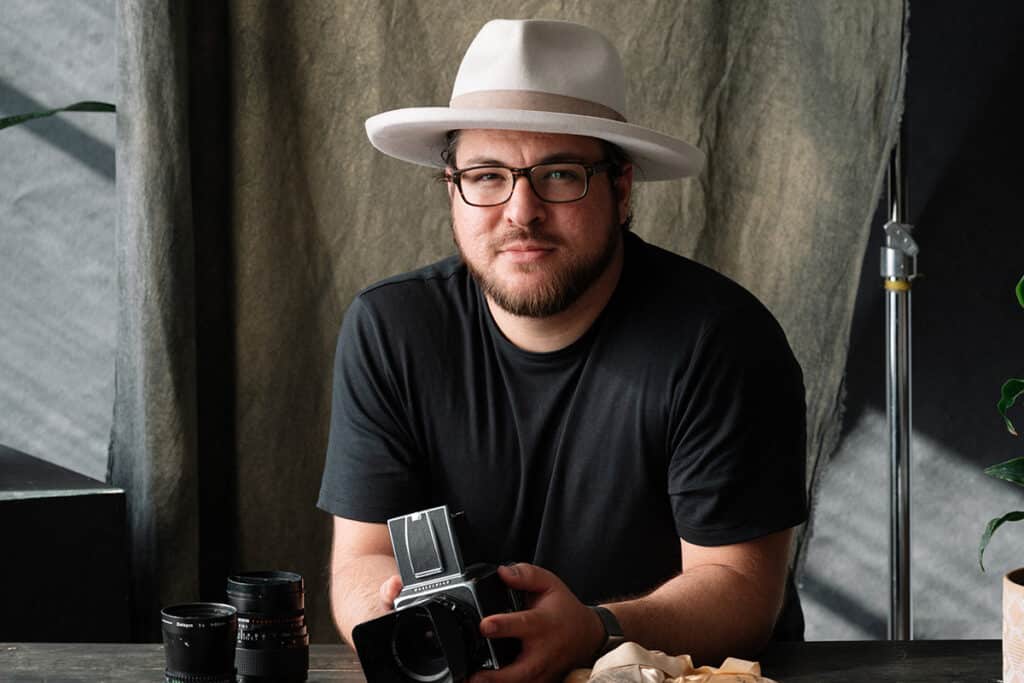On the wall of Elizabeth Ames Jones’ office in Austin is a huge geological map of our state showing what’s normally hidden from view — the underground terrain. Jones, who is the chair of the Railroad Commission of Texas (RRC) seems to derive genuine pleasure from looking at it.
“This is our world here at the commission. We take care of what’s underground,” she says, before inviting her visitor to take a seat in front of a wall-to-wall window overlooking the Texas Capitol. The world she is referring to encompasses much of Texas energy resources and production. Though it no longer has anything to do with railroads, Jones’ agency regulates five important industrial sectors, including the oil and gas industry, gas utilities, surface mining of coal and uranium, pipeline safety and the propane industry. But the oil and gas part receives three-quarters of the attention. Given that Texas is the largest producer of these two commodities in the United States, accounting for 30 percent of natural gas needs and nearly 20 percent of oil supplies, RRC is obviously a highly visible and influential governmental body. Chairman Jones, as everybody calls her, would like to see these numbers go up.
“The needs for energy are national,” she says.”We need to increase our domestic production in both oil and gas. The country needs what we have to offer if we are going to reduce dependence on foreign oil. Oil and gas exploration had slowed down in our country for a while because it was more expensive to drill here than, say, in Saudi Arabia. But because the cost of energy has gone up, companies can now justify going in and using advanced technology to drill more expensive wells.”
In addition, new technologies have made drilling both cleaner and more efficient, making it possible to explore just about everywhere, including in populated urban areas. It may not be quite the oil boom of the past, but it may very well be a better one.
A great deal of activity right now is centered on the huge Barnett Shale Field, discovered in 1981 by a small independent operator. Estimated to hold 26 trillion cubic feet of natural gas, the field covers several counties, stretching from Fort Worth to the outskirts of Denton. It’s the largest natural gas field in the nation, says the chairman proudly. She leads us to an adjacent room to look at more maps, pointing out the blue spots that indicate operating wells.”They are drilling in schoolyards, on city property, at the Dallas/Fort Worth airport. It’s very busy,” she says with obvious excitement. “I have seen with my own eyes that production can co-exist with parks and urban settings very safely. It has really gotten big in the last several years. We still don’t know how big this field really is. And what’s happening with Barnett is also happening elsewhere in Texas. New technology is helping to redevelop East Texas oil fields again. We can see a growth in production for many years.”
Under her leadership, RRC issued 17,000 new drilling permits in 2005 and perhaps as many as 19,000 last year. At the same time, it is also the agency’s job to make sure that the environment is not negatively impacted and that abandoned, so-called orphan wells are safely plugged up.”We are back to the past, only we are doing it better now. We are more safety conscious,” says Jones.
To encourage exploration, the chairman believes that it’s important not to implement regulations that have the opposite effect unless “based on very sound science.” RCC revokes permits if necessary and imposes penalties,”but we are cautious not to over-regulate,” she says.
A sixth-generation Texan, born and raised in San Antonio, Jones hardly looks like a tough regulator of a “manly” business like fossil fuel recovery. Blond and elegantly turned out, she resembles more a former Junior Leaguer than the oil patch heavy. Yet few would doubt her competence or dedication. Together with the other two commissioners, Michael Williams and Victor Carrillo, the 50-year-old Jones oversees 730 employees and a $60 million operating budget. Her duties fall into roughly three categories: administrative/organizational, educational (vis-à-vis the public) and what she calls “the meat” of her job, which is shared with her fellow commissioners. The three serve “as the supreme court for the oil and gas industry in Texas,” she says.
Every two weeks they meet in formal conference to hear and decide on a variety of cases brought before them by the companies they regulate. The cases may involve a request for a waiver from a particular rule, a proposal for a utility rate increase, a dispute between two producers or deciding on a settlement a company
must pay because of faulty operations. Though the commission gets staff recommendations, the chairman spends hours studying each situation in order “to make informed decisions as an adjudicator based on the law, our rules and the facts.”
MOM, LEGISLATOR, COMMISSIONER
The daughter of geologist Eugene Ames, Jr., Jones grew up with three brothers surrounded by talk of oil rigs and politics. She still remembers the smell of crude oil her dad would bring on his clothes after returning home from the field. “That smell is so embedded in my mind,” she says. “I treasured for years a jacket he wore. I could wrap myself in that jacket. I don’t think, though, that my father ever dreamt that his daughter would have the inclination to get involved in this business.”
Neither did she. Following graduation from Alamo Heights High School, Jones earned a degree in journalism from UT Austin, then spent some time in New York pursuing her interior design interests. When she eventually returned to Texas, she moved to Houston, where she met her future husband, attorney Will Jones, on a blind date. The couple married in 1983 and settled in San Antonio, where both their children were born. Today, the Joneses are officially residents of Austin because the law requires that the commissioner live there.
But it was from San Antonio that she launched her political career. After 15 years of being a wife and mother, Jones resolved to act on her lifelong interest in politics by becoming a politician herself. She had worked on Gov. Bill Clements’ campaign years before, and she and Will had been active in the Republican Party all along. In 2000, however, she ran for and won a seat in the Texas House representing District 121.
Though she enjoyed the support of some influential political figures, running a campaign against an incumbent proved tougher than she thought. Money raising was, of course, part of it. She recalls how once during the campaign, her 13-yearold son reacted to the latter. Mother and son were in the car when Jones decided to call a potential donor to see about his contribution to her campaign. When she hung up, the teen asked, “But Mom, isn’t that embarrassing?” Well, it’s not the most comfortable thing in the world, but that’s how our political process works, Mom explained. Without campaign contributions, she would not have been able to run.
As to what propelled her into the political arena, the explanation is pretty straightforward: “I felt a tremendous sense that taxpayers were disenfranchised, that their voice was not being heard. I thought that somebody like myself could make a difference. We had two kids, a mortgage, paid taxes. People could identify with me, and I had the fire in the belly. Really, it’s not just a cliché.”
Her new calling, however, was hard on the family. With daughter Annabell in boarding school, it fell to her son, William, to learn to cook for himself and his dad. In addition, the logistics of living in two places were problematic.”I would get home, and I would have one black shoe and one brown shoe. The rest were left in Austin,” she recalls with a chuckle. “At least my shoes are all in one place now.”
During her nearly three terms in the Texas House, Jones served on several committees, including Energy Resources, Appropriations and the Select School Finance committee. She was also the vice-chairman of the House Republican Caucus, the first woman to hold a leadership position in that group. She is especially proud of the fact that she participated in the crafting of the first post- WWII budget that actually reduced state spending in the “terrible financial landscape” of those years.
ANOTHER PART OF HER LEGACY
But her legacy has another aspect, as well. Moved by the illness and suffering of a friend’s young daughter, Jones worked on the creation of the Texas Cord Blood Bank, located here in San Antonio at the South Texas Blood and Tissue Center. The bank stores and pro- Elizabeth and Will Jones are pictured with their children, William and Annabell. Jones was elected to the Texas House in 2000 and to a full term as chair of the Railroad Commission in 2006. vides umbilical cord stem cells — an alternative to embryonic stem cells — that can be used to treat leukemia, lymphomas, sickle-cell anemia and other diseases. “It was such a meaningful thing to work on,” says the former legislator. Both Republicans and Democrats helped me. It was exciting to be able to leave something like that behind.”
Being a lawmaker was certainly satisfying, but when Gov. Rick Perry tapped her to replace a departing RRC commissioner in 2005, Jones promptly said yes. The following year, she won her post fair and square through statewide elections after a campaign that took her to 30 Texas cities in 30 days. This was a bit different from campaigning in her home district, which she could cross in 15 minutes. “Now, the entire state is my home,” says this lifelong San Antonian. Her term in office expires in 2012.
Her past legislative experience is an asset in her present endeavor. Most obviously,she is familiar with the process of funding state agencies and still has friends at the Capitol, but she also learned how”to stretch a dollar.” In addition, she has a reputation for being good at working with people, be they her fellow commissioners, staff, legislators or the operators RRC regulates. Especially the latter. The chairman wants her agency to serve the industry she clearly cares deeply about in a fair and comprehensive way.
Among other things, she has pushed for an upgrade in RRC’s information technology capabilities, which is already greatly facilitating the producers’ transactions with the commission and has made a lot of important information available online.
“Every paper in our archive will eventually be scanned and put online. We can then provide a service at a lower overhead cost,” explains Jones. “Industry will have access to data, and our inspectors will be able to file their reports online.”
Because of her interest in the coastal region (“I love the beach!”), Jones also serves on the Coastal Coordination Council, a body charged with adopting policies regarding the use of natural resources along the Texas coast. As part of its duties, it oversees grants for such projects as environmental cleanup and wetlands restoration.
Given that RRC’s jurisdiction extends to oil wells in the Gulf of Mexico, does she see offshore drilling as being in conflict with the good management of natural resources? The answer is no; on the contrary.
“I think California and Florida are wrong not to allow offshore drilling,” she explains. “California bases its environmental policy on passion and fear. I am a proponent of allowing our resources to be discovered safely. We benefit from offshore drilling in the Gulf. It generates a tremendous amount of oil, and spills are extremely rare.”
But Jones, too, is passionate. Her vision is about a United States largely independent of foreign fossil fuel, especiallyfuel imported from not-so-friendly countries. Through her recent appointment to the Research Partnership to Secure Energy for America, she will have another chance to support technological innovation that permits safe deep-water and unconventional development of hydrocarbon fuels.
“One of my goals is to be an educator, to educate people on how this country can really have it all — the environmental integrity and, at the same time, development of state and national resources,” she says. “If we can drill next to tennis courts, we can also safely drill in Alaska. It’s not a political issue. It’s science based.”
Author: Jasmina Wellinghoff
Photographer: Liz Garza Williams




